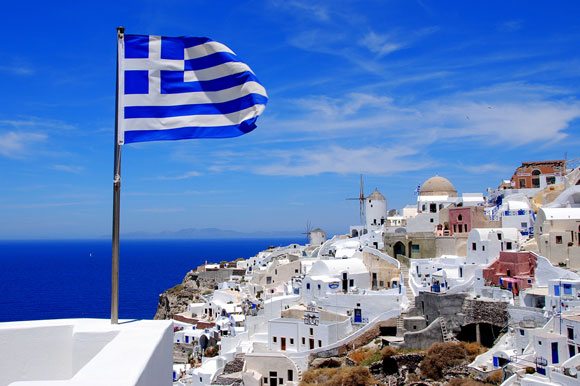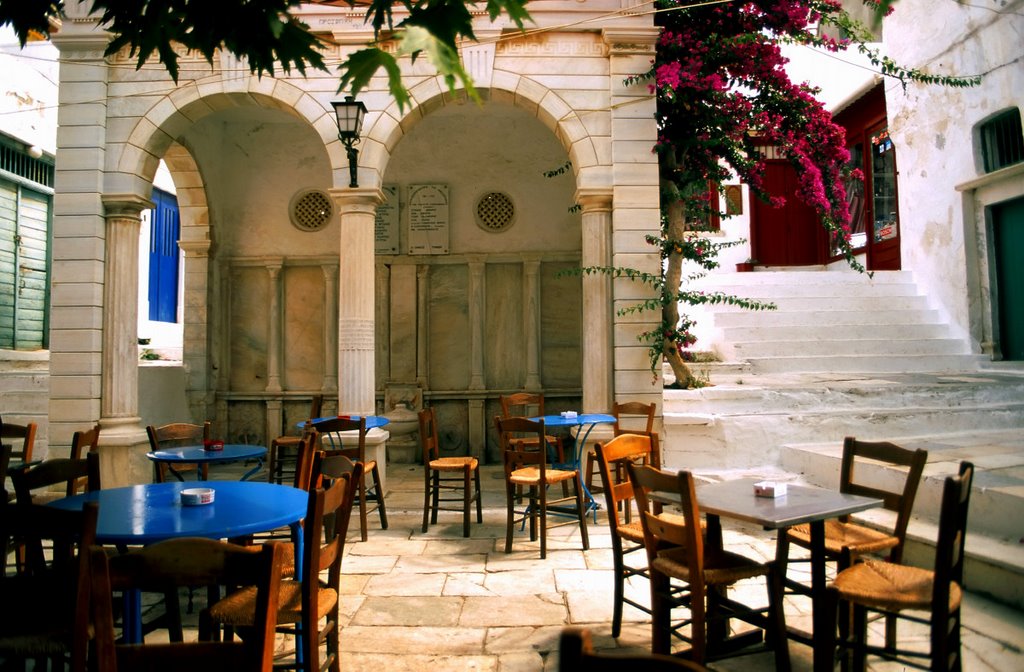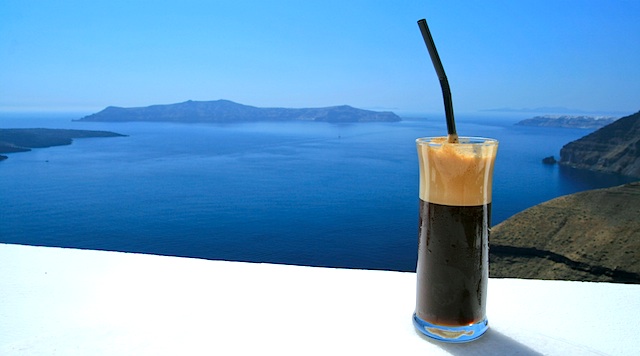Ancient mythology, the home of the Olympics, and copious amounts of smashed plates, of course, today we’re looking at the coffee culture in Greece.

Sandwiched between Italy and Turkey with a topping of Albania, Macedonia and Bulgaria, Greece is known for its hot climate, beautiful beaches and rich heritage which therefore makes the country a popular destination for holiday makers and tourists from all around Europe and beyond.
Boasting a total of 3,000 islands, there’s plenty of places to go and things to do in Greece, and enjoying coffee is on the list…
Coffee Culture in Greece
Despite only being home to around 11 million people, Greece is one of the top coffee-consuming countries in the world. Greece is a country steeped in culture, and their coffee culture is a big part of modern Greek society.
The Greeks’ love with coffee has not just seen their coffee industry survive their economical turmoil of recent years, but it’s thrived and continued to outgrow many other countries. Despite seeing some pretty hard financial times that were pretty well documented all around the world, the coffee industry in Greece was valued at almost 1 billion euros last year – €990m to be exact.
To me, this suggests that in Greece, coffee is a pretty big deal and something that the Greek people prioritise.
Taking On the Big Chains
As with any country, cafes and coffee houses are all over Greece, which has attracted interest from the big name players such as Starbucks. However, it’s the smaller Greek cafes that are making ground with local cafes and coffee shops popping up all over Greece.

There are two different types of Greek cafe: ‘kafeteria’ and ‘kafenio’.
Kafeterias are more popular hangouts for younger people that have a more modern vibe and offer a selection of coffees made by different brewing methods and a variety of food too. In the warmer months they provide tables outside for people to enjoy both the coffee and the weather at the same time, and also convert into bars in the evening.
The kafenio is a more traditional style cafe that has been in Greece for many years. These are frequented by local elderly men (although all are welcome) and you’ll often find people chatting about local news, having a catch up or even playing a game of chess.
Expert Coffee Makers
Not only are the Greeks good at drinking coffee, they’re also pretty good at making it too. The annual World Coffee in Good Spirits Championship is a competition held to showcase the coffee making abilities of some of the top coffee makers around the world. The twist is that the competition “highlights the barista/barkeeper’s mixology skills in a setting where coffee and alcohol go perfectly together” as stated on the championship’s website, although other categories are included too.
Since 2005 Greece has produced 10 world champions in different categories across the board at the championships. For a country with a relatively small population, that’s really not bad going!
Cold Coffee is Red Hot
So here’s one that you may not have known… but the frappe (very popular in McDonalds these days) was actually invented in Greece. Here’s another one you might not have known… the frappe was accidentally invented in Greece.

Way back in 1957 a chap named Dimitris Vakondios somehow, in what I can only assume was some sort of freezer/coffee based incident – I have no idea – stumbled across cold instant coffee and called it the frappe, meaning ‘chilled’ in French.
Since then, the Greek frappe sensation has been a huge hit in Greece, especially with younger, and of course is a firm favourite in the heat of the Greek summers.
Caffeine Coming of Age
In different cultures all over the world, there are various activities and informal ‘ceremonies’ that take place to show maturity and entering into adulthood.
In some countries, for young men, it’s going out on their first hunt. Or, equally as cool and dangerous, in Britain having your first legal pint with your dad.
For young Greek women, being able to make a decent cup of Greek coffee is a sign of maturity. That’s how highly thought of coffee is in Greek culture.

